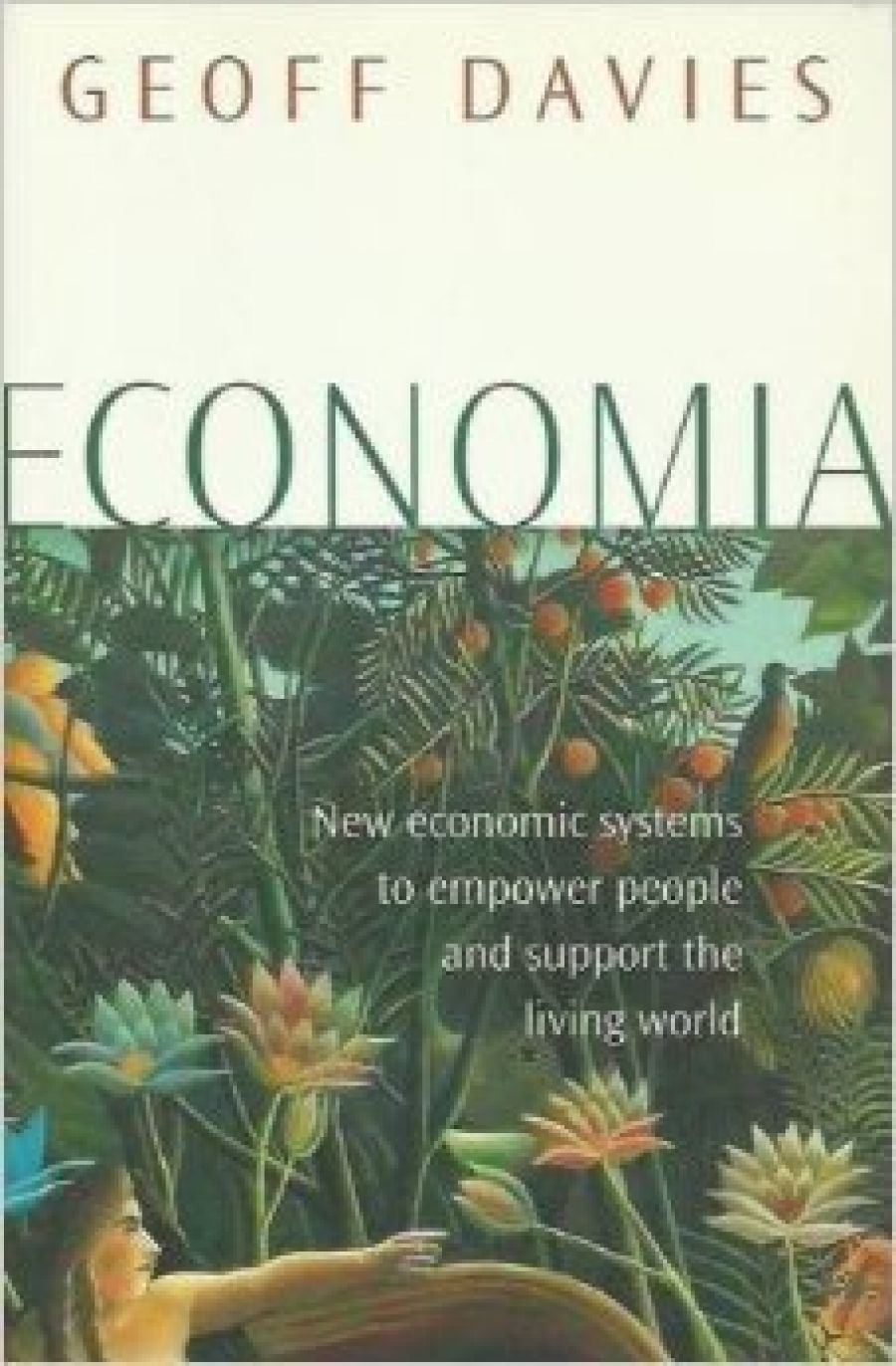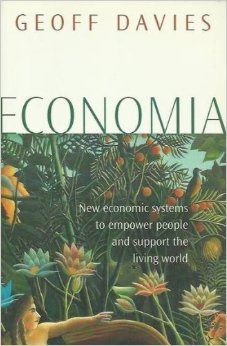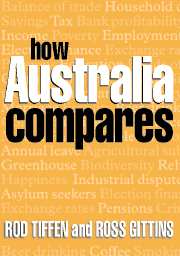
- Free Article: No
- Contents Category: Economics
- Custom Article Title: The Middling Country
- Review Article: Yes
- Article Title: The Middling Country
- Online Only: No
- Custom Highlight Text:
Australians like to believe they live in the best country in the world. Plenty of space, abundant natural resources and lots of sunshine for this nation whose inhabitants have come from all corners of the earth to a land of opportunity. It’s an appealing national smugness that has comforted generations of Australians as they looked with tolerant amusement at the congested societies of industrialised countries elsewhere in the world. Aren’t we lucky!
Occasionally, there may have been some nagging doubts as we looked at the growing wealth of the Asian economies and the technological sophistication of overseas manufacturing. Are we as smart as they are? Do we work hard enough? Are we falling behind? Is this the land of the long weekend? In recent years, have we become hard-hearted and lazy? Good questions, and easier to answer anecdotally and instinctively rather than empirically. Generally, we thanked our lucky stars.
- Book 1 Title: Economia
- Book 1 Subtitle: New economic systems to empower people and support the living world
- Book 1 Biblio: ABC Books, $39.95 pb, 498 pp
- Book 1 Cover Small (400 x 600):

- Book 1 Cover (800 x 1200):

- Book 2 Title: How Australia Compares
- Book 2 Biblio: Cambridge University Press, $49.95 hb, 282 pp
- Book 2 Cover Small (400 x 600):

- Book 2 Cover (800 x 1200):

The authors of How Australia Compares have set out to put some hard comparative figures together to test the validity of the national complacency. It’s a worthwhile project and one that hasn’t been done before in this form. The book looks at seventeen countries – all stable and affluent liberal democracies – and compares them with Australia on a wide range of measures from educational attainment to income per capita to health. The countries chosen were Austria, Belgium, Canada, Denmark, Finland, France, Germany, Ireland, Italy, Japan, the Netherlands, New Zealand, Norway, Sweden, Switzerland, the United Kingdom and the United States. The book is set out with each topic covered by a page of tables and a page of explanatory text. It’s a very accessible format for the general reader. So how do we compare? Across a range of measures, the short answer is that Australia comes in generally in the middle. Neither the best nor the worst, we seem to be holding our own without showing any signs of breaking away from the pack. A national mediocrity? Not really. We appear to be travelling well.
Some popular myths are destroyed. It turns out that we are the hardest-working nation in the developed world, topping the list for the average number of hours worked per year. Japan is third; European countries gain the prize for taking it easy. Hard work isn’t killing us, though; we rank second in life expectancy. We come in the middle of the table for income per capita, so Australia’s standard of living is pretty much par for the course in the developed world. The United States, Canada, and Ireland rank above us, but we are well ahead of the United Kingdom, France, and New Zealand. Some things should concern us. We place third last on business research and development spending as a percentage of GDP, and last in a table of the balance of trade in information and communication technology as a percentage of GDP. Not yet the clever country.
The book is a mine of information, and rewards a lengthy browse. There are some gems. We aren’t the big boozers we think we are, scoring an average result for litres of alcohol consumed. The French and the Irish top the list, confirming that national stereotypes aren’t always wide of the mark. Australians rank above average for being happy, and three-quarters of us would be willing to fight for our country, so we must love it. By contrast, only twenty-three per cent of Japanese and thirty-one per cent of Italians would be willing to defend their country. The countries most willing to fight were the Scandinavians, who have barely been involved in any wars over the last half-century. Perhaps the actual experience of war makes a country gun-shy.
I suspect that Geoff Davies would find these comparisons more grist for his mill. Economia is a big project: more than 460 pages devoted to a critique of modern economic theory and practice. Davies is highly critical of what he calls neo-liberal approaches to economic theory, characterised by a belief in the inherent efficiencies of the free market. Davies doesn’t stop there, proceeding to a critical analysis of much of Western economic and social organisation.
Davies, an ANU academic, comes via an unusual route to this task, as he is not an economist. He is a geophysicist whose speciality is the movement in the earth’s crust and convection in the mantle. Heaven knows what view he would take of an economist coming up with some novel theories on movements in the tectonic plates. Probably a dim one. Davies defends himself by saying that, as a scientist, he likes to test any theory against the facts. He asks why economic theory should be any different. There’s always a danger in those outside an area of expertise assuming that those on the inside have got it all wrong. Not that there aren’t plenty of valid criticisms to be made of conventional economic theory, and Davies manages to outline most of them. He ranges widely, mixing economic, social and political history with social and environmental observation, anthropology and even the occasional foray into the complex nature of animal society and evolution. You get the sense that Davies wants to get the fruits of a lifetime’s wide reading all down in one go. The book is also infused with the argot and tone of the New Age. At the risk of oversimplifying things, he quite rightly suggests it would be better if there were a little more love in the world. He talks of ‘energy flows’ and ‘creative synergy’.
As if it needed doing, Davies points out that the state of much of the world is wretched: the natural environment is being destroyed at an alarming rate; the poor get poorer and poorer nations more indebted; and the rich, both people and nations, get richer. Misery abounds. The trouble is that Davies does tend to throw the baby out with the bathwater. A freer and more open trade system does, in fact, bring great benefits to people and nations. Demonising Margaret Thatcher without acknowledging the great economic reforms that were wrought under her government makes no sense. Nor does it make sense, as Davies does, to look at pre-industrial and agrarian societies and to assume that people were better off in a social and economic sense.
Davies has brought wide reading and an acute social conscience to his subject. The trouble is that it’s not entirely clear what his subject is. His brush is broad and his canvas immense. The scope of Economia is at once its strength and its weakness. Davies suggests a return to old-fashioned family values, solid and connected local communities, and a rediscovery of old verities. In that sense, his vision is unashamedly utopian, although he would claim that the journey to where he imagines us is not that far. If only economic theory alone could solve problems of human greed, the tendency of tyrants to oppress their people and the developer’s desire to make a quick buck.
It is perfectly plain that the world needs better systems, both social and economic. Davies would like us to embrace the notion of Gaia, an idea proposed by James Lovelock that posits that the earth’s living and natural world are held in a close balance. Disturbing that balance brings catastrophe. It’s an idea that Davies embraces fully in his quest for a more human economic theory. He wants a better world. And amen to that.


Comments powered by CComment